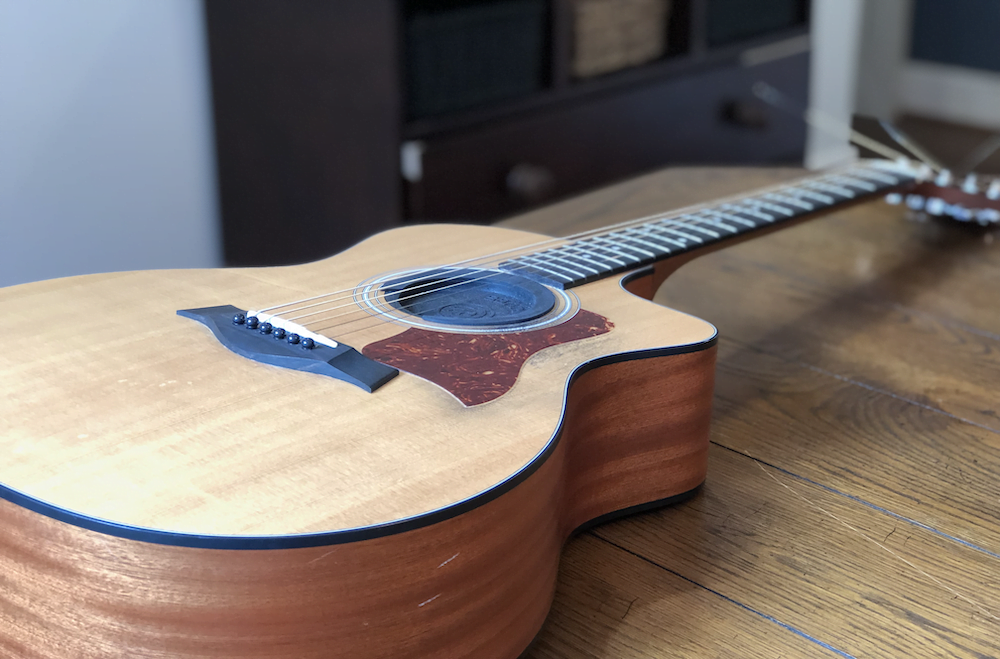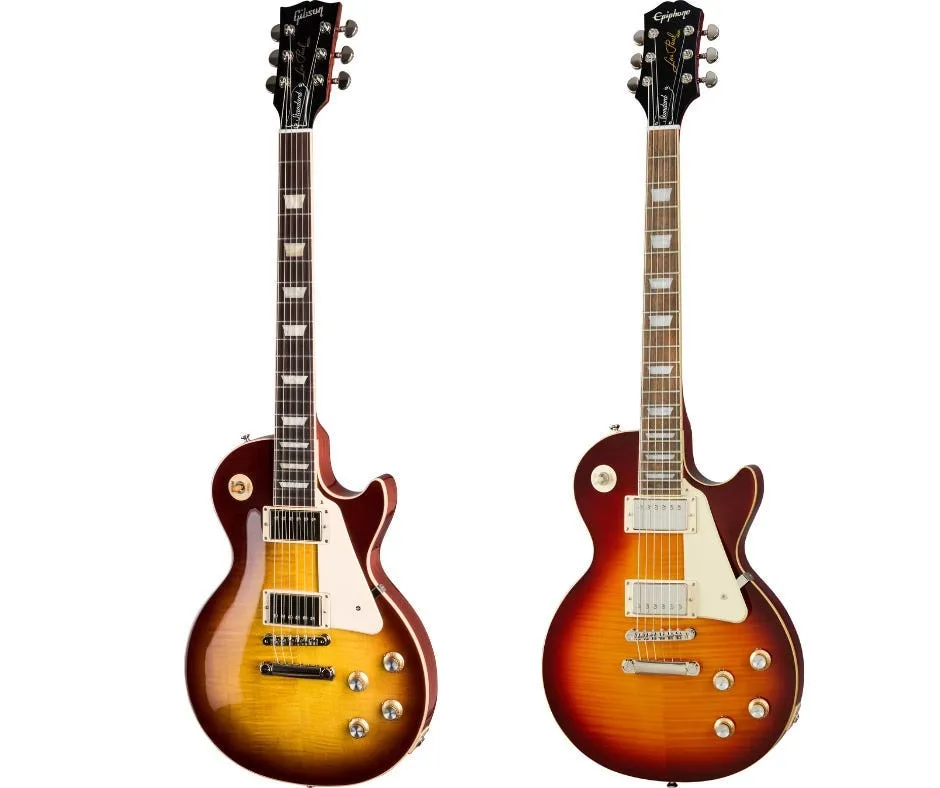Hey there fellow guitar enthusiast! Are you looking to sell your beloved guitar but have no idea how much it’s actually worth? Or maybe you stumbled upon a vintage guitar at a garage sale and want to know its value before making any purchase decisions. Well, look no further because I’ve got you covered.
In this article, we will explore everything you need to know about determining the value of your guitar. From understanding the key factors that influence its price, such as brand, model, and condition, to tips on where and how to sell it for the best price. As someone who has been buying and selling guitars for years, I assure you that by the end of this read, you’ll have a clear idea of just how much your precious instrument is worth. So let’s get strumming!
So, how much is my guitar worth?
Determining the value of a guitar can be a tricky and subjective task. There are many factors that can affect the worth of a guitar, including its age, brand, condition, and rarity. In this guide, we will break down the different elements to consider when trying to determine your guitar’s value.
1. Brand:
The brand of your guitar is often one of the first things people look at when assessing its value. Some brands have built up a reputation for producing high-quality instruments that hold their value well over time. Examples include Fender, Gibson, Martin, Taylor, and PRS. On the other hand, lesser-known or generic brands may not hold as much value.
2. Age:
Just like with vintage cars or antiques, age plays a significant role in determining the value of guitars. Generally speaking, older guitars tend to be more valuable due to their rarity and potential historical significance. However, this is not always true as some newer models from reputable brands may also hold high values due to limited production runs or special features.
3. Condition:
The condition of your guitar is crucial in determining its worth as it directly affects playability and aesthetics. A well-maintained instrument with minimal wear and tear will typically fetch a higher price than one with visible damage or signs of neglect.
4.Collectibility/Rarity:
Guitars that are considered rare or collectible can command high prices on the market due to their limited availability or unique features/designs. This could include limited edition models signed by famous musicians or vintage guitars from specific eras that are highly sought after by collectors.
5.Modifications/Customizations:
Modifications made to an original factory-made guitar can either increase or decrease its value depending on how they were done and if they enhance playability/sound quality without compromising authenticity.
6.Provenance:
Provenance refers to any documentation that provides evidence about where/when a guitar was made, who owned it, and any significant events associated with it. This information can add value to a guitar as it adds to its historical significance and authenticity.
7.Market Demand:
Ultimately, the market demand for your specific guitar model will also play a role in determining its worth. If there is high demand for that particular brand or model at the time of sale, you may be able to fetch a higher price compared to when demand is low.
In conclusion, determining the value of your guitar involves considering multiple factors such as brand reputation, age, condition, rarity/collectibility, modifications/customizations, provenance and market demand. It is always best to do thorough research and consult with experts before selling your instrument to ensure you get the best possible price.
Identifying the Key Factors that Influence Your Guitar’s Value
When considering the value of a guitar, several key factors come into play that can significantly impact its worth. First and foremost is brand reputation. Renowned brands like Fender or Gibson often hold their value better than lesser-known names due to their legacy and craftsmanship. Additionally, the model of the guitar plays an essential role; limited editions or signature models typically command higher prices because of their uniqueness and collector appeal. The condition of the instrument is another critical aspect—guitars in pristine shape with no scratches or dents are generally more valuable than those showing signs of wear.
Another important factor influencing your guitar’s value is its age. Vintage guitars, especially those produced in particular eras known for exceptional quality, can be quite coveted among enthusiasts.
Other aspects include craftsmanship and materials used; instruments made from high-quality woods like mahogany or maple not only sound better but also tend to hold their value over time. Finally, provenance matters too—if a guitar has an interesting backstory such as being owned by a famous musician, it can dramatically elevate its market price. All these elements intertwine to create a unique tapestry that ultimately determines how much your beloved instrument is worth on today’s market.

Read also: how to tie classical guitar strings
Assessing the Condition of Your Guitar: A Detailed Breakdown
When you pick up your guitar, the first thing to notice is how it feels and sounds. Inspecting the body for any dings or scratches can reveal hidden issues that might affect its tone. The finish should be smooth without any noticeable irregularities. Next, check the neck; ensure it’s straight and free from cracks. If you look closely at the fretboard, you’ll want to watch for wear on the frets themselves—are they shiny and flat? Worn frets can lead to buzzing strings, making your beloved instrument hard to play.
The strings are another crucial element in assessing your guitar’s condition. Old or rusty strings can greatly diminish sound quality and make playing uncomfortable. Consider changing them regularly! Additionally, examine the hardware: tuning pegs should turn smoothly without resistance, while bridge saddles need proper alignment for intonation purposes. Lastly, don’t forget about electronics if you have an electric guitar—check pickups and wiring by plugging into an amp; listen for clarity or any crackling sounds that indicate a problem. By taking time with these details, you’re ensuring that your music flows as beautifully as possible each time you strum those chords!
The Impact of Brand and Model on a Guitar’s Worth
When it comes to a guitar’s value, the brand and model play crucial roles. Renowned brands like Fender and Gibson have built reputations that resonate with musicians around the world. This prestige often translates into higher prices for their instruments due to both quality craftsmanship and historical significance. For instance, vintage Fender Stratocasters from the 1960s are not just guitars; they are pieces of music history that evoke strong emotions among collectors. The specific model also matters greatly; limited editions or signature series can command even higher prices because they carry unique features or endorsements from famous artists.
Furthermore, beyond just brand recognition, factors such as build quality, materials used, and design intricacies contribute to a guitar’s worth. A well-crafted instrument made from premium woods will likely fetch more than one made from lesser-quality materials. Collectors often look for details like – rare finishes,
– neck profiles,
– hardware types,
and other specifications that distinguish certain models in the market. As trends shift over time—what was once deemed valuable may change—making it vital for enthusiasts to stay informed about both current demand and lasting legacies when considering buying or selling an instrument.
Where to Sell Your Guitar for the Best Price: Trusted Platforms Explored
When it comes to selling your guitar, finding the right platform can make a big difference in how much money you earn. Many sellers turn to popular websites like Reverb and eBay. These platforms attract music lovers from all over, giving your instrument more exposure. Reverb is particularly focused on musicians and offers a friendly community where buyers appreciate unique instruments. Sellers can create detailed listings with multiple photos and descriptions that showcase the guitar’s features, making it easier to connect with potential buyers who understand its value.
Another option worth considering is local marketplaces such as Craigslist or Facebook Marketplace. Selling locally allows you to avoid shipping costs and gives buyers the chance to see—and play—the guitar before purchasing. This personal interaction can build trust between seller and buyer, leading to smoother transactions. When using these platforms, be sure to take clear photographs of your guitar from different angles, highlighting any special details or imperfections. Don’t hesitate to communicate openly about its history; whether it’s been used for gigs or jam sessions adds character that many players find appealing! In summary, choose wisely between online platforms or local sales based on what feels right for both you and your beloved instrument.
You may also like: guitar method book 1
Conclusion: Understanding and Maximizing Your Guitar’s Worth
When it comes to understanding your guitar’s worth, there are several factors that come into play. First and foremost, the brand and model significantly impact value. Renowned brands like Fender or Gibson often hold their value better than lesser-known manufacturers. Additionally, the condition of the instrument is crucial; a well-maintained guitar with minimal wear will fetch a higher price compared to one that has seen rougher days. Any modifications made over time—like custom pickups or refinishing—can either enhance or detract from its original worth depending on how they align with players’ preferences.
Another important aspect is provenance, which refers to the history of ownership and any notable past players associated with the instrument. Guitars once owned by famous musicians can skyrocket in value due to their stories and connections within music history. To maximize your guitar’s worth, consider keeping detailed records of maintenance, repairs, and any unique attributes it might have. Taking high-quality photographs for potential buyers also helps showcase its best features while clear descriptions add an engaging narrative around its significance. In essence, appreciating all these elements enables you not only to understand but also to elevate your cherished instrument’s market appeal when it’s time for a change.

